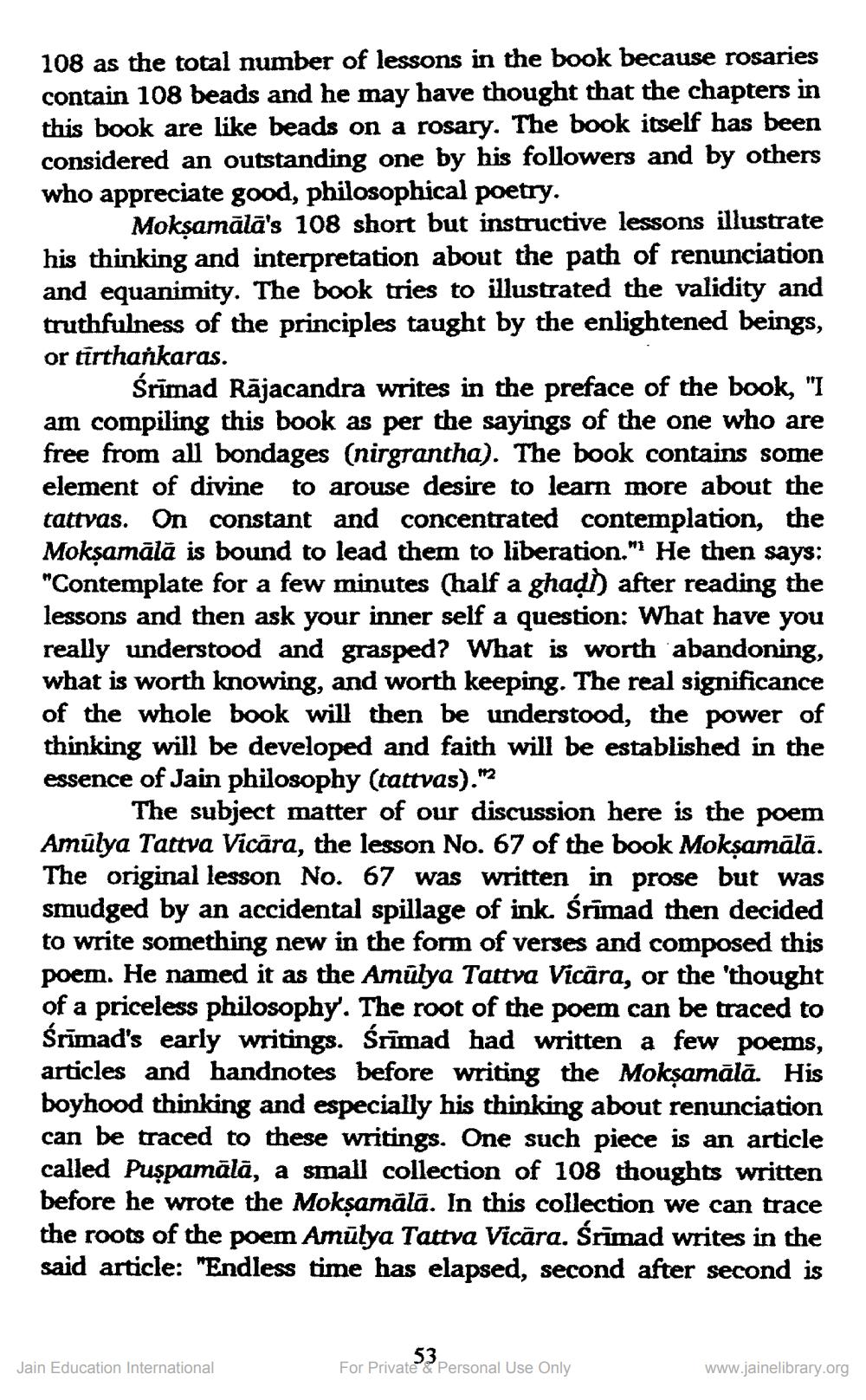________________
108 as the total number of lessons in the book because rosaries contain 108 beads and he may have thought that the chapters in this book are like beads on a rosary. The book itself has been considered an outstanding one by his followers and by others who appreciate good, philosophical poetry.
Mokṣamālā's 108 short but instructive lessons illustrate his thinking and interpretation about the path of renunciation and equanimity. The book tries to illustrated the validity and truthfulness of the principles taught by the enlightened beings, or tirthankaras.
Śrīmad Rājacandra writes in the preface of the book, "I am compiling this book as per the sayings of the one who are free from all bondages (nirgrantha). The book contains some element of divine to arouse desire to learn more about the tattvas. On constant and concentrated contemplation, the Mokṣamālā is bound to lead them to liberation." He then says: "Contemplate for a few minutes (half a ghaḍ)) after reading the lessons and then ask your inner self a question: What have you really understood and grasped? What is worth abandoning, what is worth knowing, and worth keeping. The real significance of the whole book will then be understood, the power of thinking will be developed and faith will be established in the essence of Jain philosophy (tattvas)."2
The subject matter of our discussion here is the poem Amulya Tattva Vicāra, the lesson No. 67 of the book Mokṣamālā. The original lesson No. 67 was written in prose but was smudged by an accidental spillage of ink. Śrīmad then decided to write something new in the form of verses and composed this poem. He named it as the Amulya Tattva Vicāra, or the 'thought of a priceless philosophy'. The root of the poem can be traced to Śrīmad's early writings. Śrīmad had written a few poems, articles and handnotes before writing the Mokṣamālā. His boyhood thinking and especially his thinking about renunciation can be traced to these writings. One such piece is an article called Puṣpamālā, a small collection of 108 thoughts written before he wrote the Mokṣamālā. In this collection we can trace the roots of the poem Amulya Tattva Vicāra. Śrīmad writes in the said article: "Endless time has elapsed, second after second is
Jain Education International
53
For Private & Personal Use Only
www.jainelibrary.org




